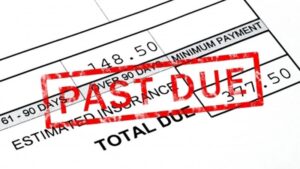Is Vince Cable Brave Enough to Take on the Insolvency Industry?
When we blogged about David Cameron’s u-turn on insolvency reform back in October, who would’ve imagined that Business Secretary Vince Cable would follow suit – certainly not us.
In June, the Office of Fair Trading (OFT) released a damning report calling for sweeping reforms of the insolvency industry.
Cable was supposed to respond to the review three months ago, but has so far failed to deliver an official statement on the government’s plans to tackle the damaging conflicts of interest that permeate the industry.
To be honest, I don’t think he has the stomach to take on such a politically charged subject right now. He has enough on his plate with the student fees fiasco and is being criticised by Downing Street; and stripped of his media, telecom and broadcasting responsibilities.
Responding to the OFT’s report would strike fear into the hearts of insolvency practitioners and Cable wouldn’t want to upset the applecart.
The problem is; IPs’ interests and those of the business industry are incompatible. Cable will have to make a decision at some point, but why would he do it now?
The OFT says the industry has no effective mandate to discipline wayward IPs and should move away from self regulation (everyone knows that self-regulation rarely works).
A new framework must be introduced, but I don’t believe Cable’s ready to strip IPs of their lucrative income fees; they currently earn 20 percent of an insolvent company’s assets.
That’s a shockingly high percentage, which regulation would reduce. Furthermore, IPs set their own fees, which is absolutely scandalous.
Looking at Cable, I just can’t see him doing that at the moment; you just know these aren’t his priorities.
It’s going to take a very brave Business Secretary to champion the cause of small business over that of the Insolvency Practitioners Association.
When he was in opposition, Cable was pro small business, but he can’t serve two masters.
Sadly, it’s the small businesses that will bare the brunt of the burden as they are usually unsecured creditors.
Banks, lenders and finance companies don’t lose out because most of their lending is secured and they have cosy relationships with IPs anyway.
So it’s small business owners who are obliged to extend credit when sometimes it should not be extended. For unsecured creditors, the process is largely undemocratic.
The public trusted Cable with the economy more than the current Chancellor George Osborne or his predecessor, Alistair Darling.
But the Business Secretary’s credibility has taken a battering recently; especially after journalists from the Telegraph secretly tapped him bragging about going to war with Rupert Murdoch.
That said, his management of these essential and long-overdue insolvency reform proposals could go some way to repairing his reputation.
Debtor Alert: Theodore Global Ltd
Theodore Global Ltd: A Company That Fails to Pay Its Staff and Trades While Insolvent If you’re thinking about working with, or for Theodore Global…
Read MoreIrene MacKenzie- The Gatekeeper of Silence
Irene MacKenzie and the Web Around William Jackson In the shadows of the alternative investment world, where buzzwords are abundant but redemptions are not, one…
Read MoreThe Grim Truth for Loan Note Holders -79th Luxury Living Six Ltd (LL6)
No assets or safeguards. No clear path to recovery. If you’re one of the many investors who entrusted your money to The 79th Group’s loan…
Read MoreOverdrawn Directors’ Loan Accounts: How to Avoid Trouble
Many company directors borrow money from their businesses through what’s known as a director’s loan account (DLA). In principle, there’s nothing wrong with this, so…
Read More




